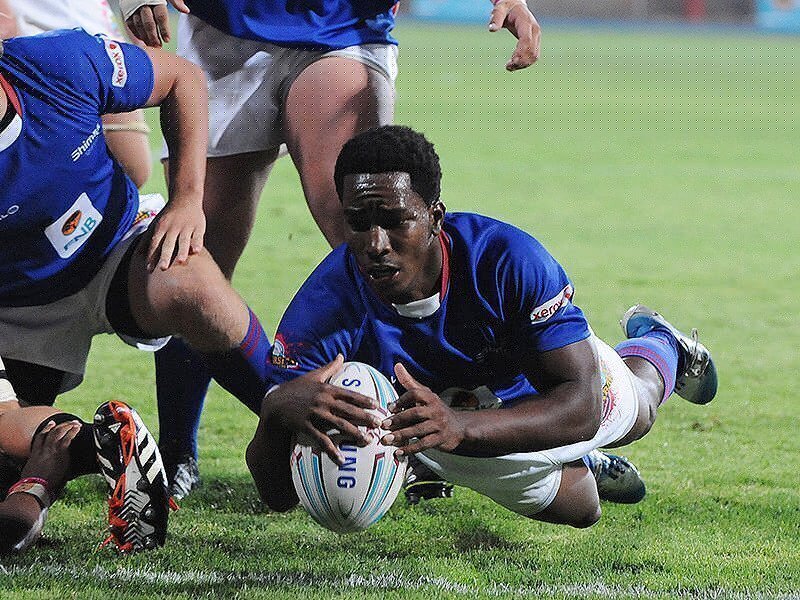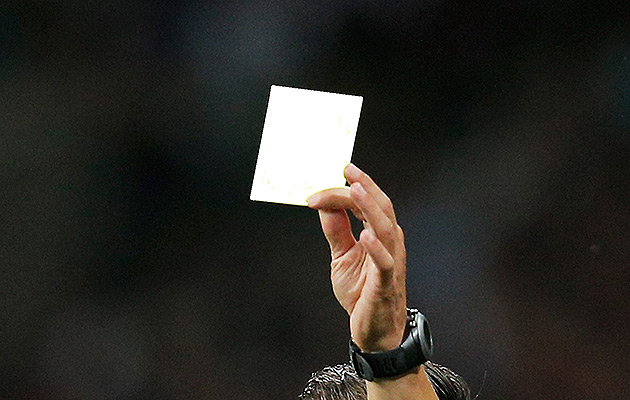Varsity Cup: Nine-point try

The Varsity Cup starts on February 8 and the law changes will come into effect then - only in the Varsity Cup, not in the Varsity Shield, the Koshuis Cup and the Young Guns.
The Varsity Cup has been an experimental laboratory before - two referees, changed points system and the white card. The changed points system and the two referees is now going universal and will be used in Australia, New Zealand, and Wales and in four World Rugby Tournaments - Nations Cup, Pacific Nations Cup, Tbilisi Cup and Under-20 Trophy.
Oddly, while these countries will be using two onfield referees, the Varsity Cup will not be, reverting to one referee on the field.
One advantage of Varsity Cup is that it has a big television viewership, broadcast as it is on a Monday evening.
Points
This at first sight seems more complicated.
A try is worth five points.
Then there are bonus points, depending on where the try-scoring move started.
If the team that scores the try started its move between the half-way line and the opponents' 22 and they kept possession from start to finish, they will get two bonus points. That means that they is worth seven points.
If the team that scores the try started its move in its own half and they kept possession from start to finish, they will get four bonus points. That means that the try is worth nine points.
Scrum
The instructions to set the scrum will change to crouch, bind, slide.
Following the initial crouch, props will bind onto each other, without being allowed to bind onto any armpit or below the middle of the rib area. Once the props have a solid grip, the referee will decide that their bind positions have been established and they will not be allowed to change or adjust those. Props will also have to line up ear to ear and not be allowed to line up head to head.
Finally, the slide call will replace set. Set was a better word than aggressive hit but the change to slide suggests a change in process. On slide the players will firm up their contact but without smashing into each other. It is more like the folding in of olden times. The front rows are lined up properly and bound fully and unchangeably, and now they come together. Then, once the referee has decided that the scrum is stable, he will instruct the scrumhalf to feed the ball into the scrum and do so in the manner prescribed by law, straight for one thing. It is hoped that in this way the scrum will be safer, less likely to collpase and encouraging a fair contest for the ball.
Maul
There is a slight change to the maul enable the referee to act more swiftly if the maul does not keep going forward.
If a maul stops moving or moves sideways or backwards, the referee will call for the maul to move forward. The team in possession will be given five seconds to get the maul moving forwards. If they fail to get the maul moving forwards the referee will allow three seconds, counted aloud, for the team with the ball to produce the ball and play with it. If they fail to produce the ball and play with it, the referee will stop play and award a scrum to the team not in possession of the maul.
White Card
The White Card review system, introduced in 2015, to allow teams a limited opportunity to ask the referee to review a decision or non-decision, will be used only in the semifinals and the final in 2016. The teams are limited to one review per half.
By Paul Dobson
@rugby365com